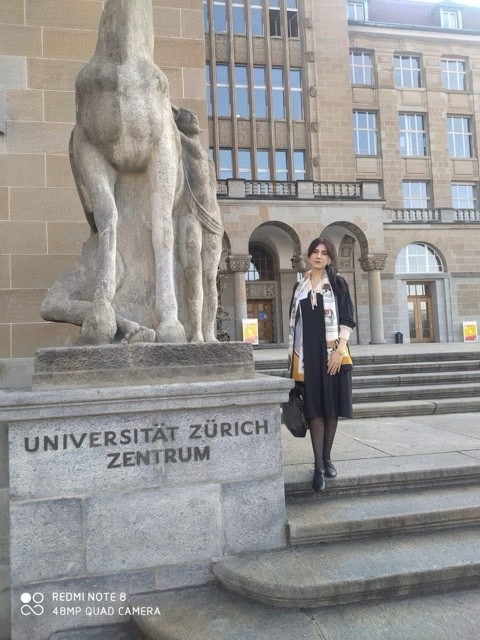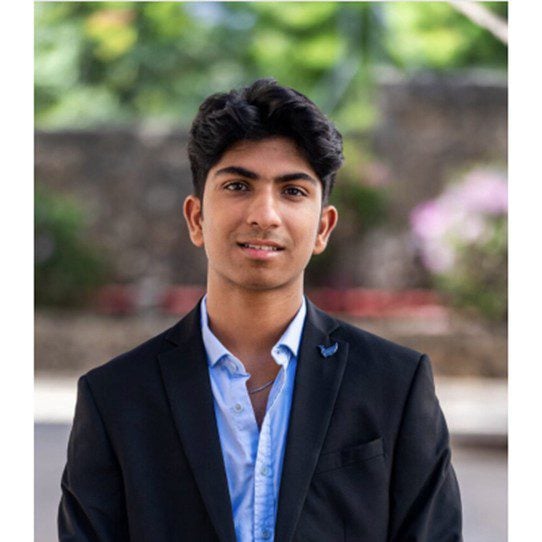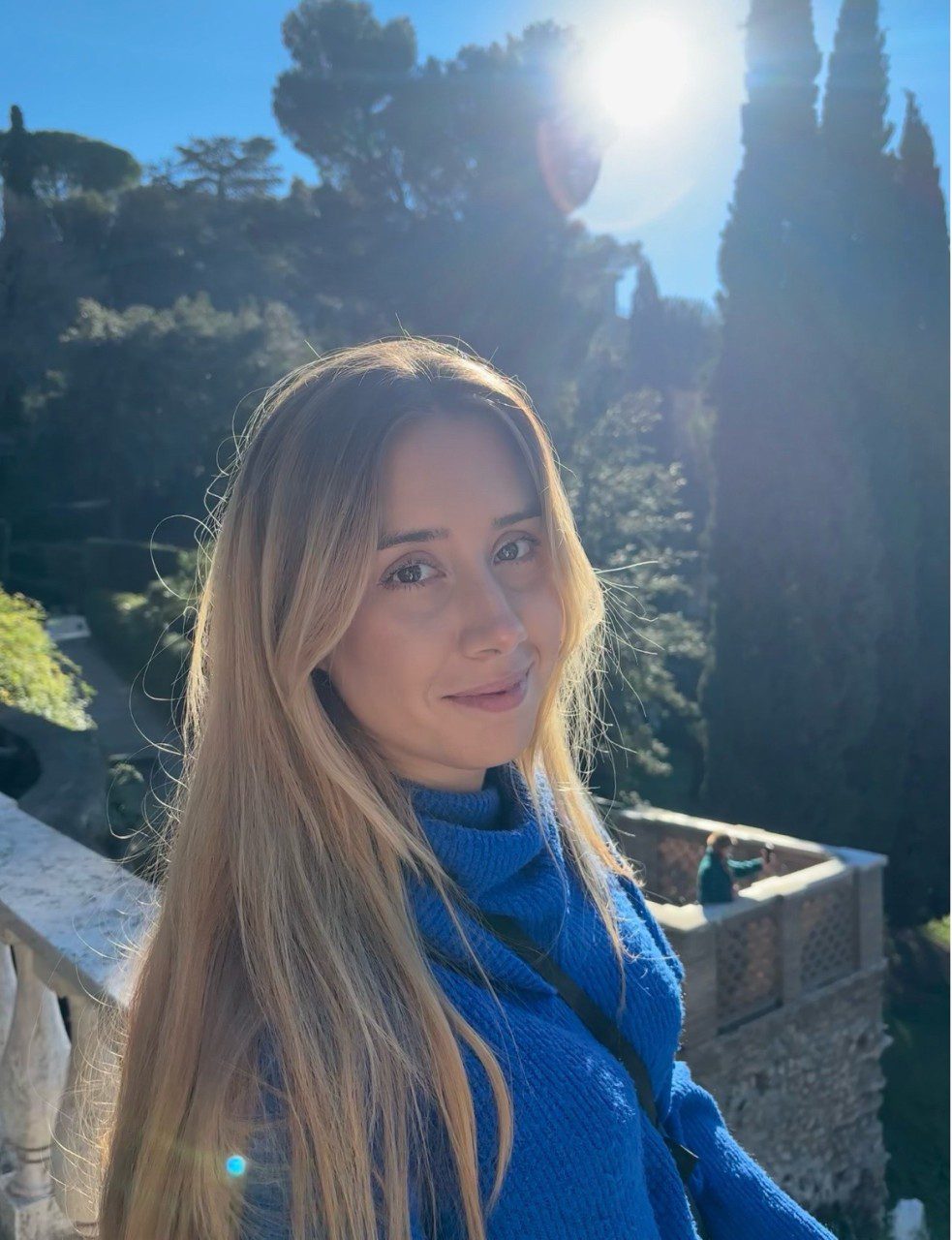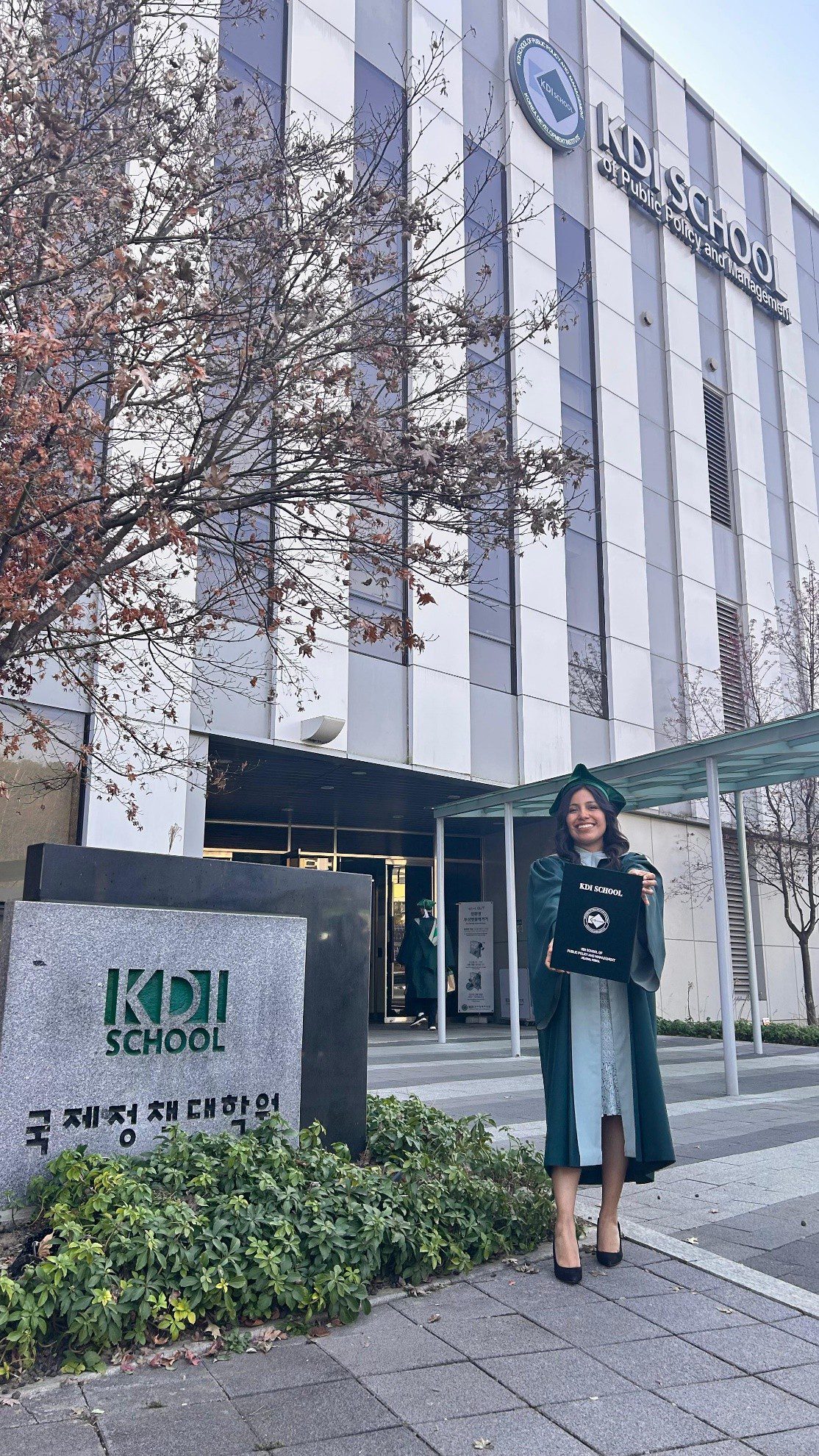How an Azerbaijani Scholar Earned the Fully Funded Swiss Federal Excellence Scholarship to Conduct Doctoral Research in Political Economy at the University of St. Gallen
University: University of St. Gallen
Degree: Ph.D. Fellowship in Political Science and Economics
Previous Education: Master’s in Political Science and Diplomacy – Vytautas Magnus University & Sciences Po
Scholarship: Swiss Federal Excellence Scholarship – Fully Funded
Other Offered Scholarships (if any): Erasmus+, Jean Monnet, Lithuanian State Scholarship, Konrad Adenauer Stiftung, Ifa, PZU, Adam Mickiewicz Scholarship, Stimson Center Grant, Visegrad School of Political Studies, Weiser Post-Doctoral Fellowship
Notable Achievements: First Azerbaijani political scientist to serve as Co-Director of the Empirical Methods Working Group at the Swiss Political Science Association; Lecturer and Unit Head at Azerbaijan State University of Economics (UNEC); Speaker and panel chair at Swiss academic conferences; Recipient of Swiss Federal Excellence Diploma and Weiser Postdoctoral Fellowship at the University of Michigan.

The Journey
I am Nargiz Hajiyeva, a Political Scientist from Ganja, Azerbaijan, the historical homeland of my ancestors and the first capital of the Azerbaijan Democratic Republic in 1918.
In 2021, my doctoral research on the Karabakh issue was selected among 3,000 candidates from 193 countries, earning me the prestigious Swiss Federal Excellence Scholarship. My family, including my husband and one-year-old daughter, relocated to Switzerland, where I conducted a Ph.D. fellowship at the School of Political Science and Economics, University of St. Gallen. Under the supervision of Professor Dirk Lehmkuhl, I investigated the illicit trade during the occupation period in Karabakh and the surrounding regions. After completing my year-long PhD fellowship, I was awarded the Swiss Federal Excellence Diploma.
In 2025, the Supreme Attestation Commission under the President of the Republic of Azerbaijan conferred upon me the title of Doctor of Philosophy in World Economy (Economics). I have also been awarded the Weiser Post-Doctoral Fellowship at the University of Michigan, Ann Arbor, a distinguished position at the Weiser Center for Europe and Eurasia, Ross School of Business, and the Department of Political Science. Under the mentorship of Professors Pauline Jones and John Branch, I conducted research on the role of education and science in post-conflict areas. During this three-month fellowship, I taught Political Science and Energy Policy courses at the Department of Political Science, University of Michigan.
I am fluent in Azerbaijani, English, French, German, Turkish, Russian, and Lithuanian. Currently, I serve as the Head of the Organization of Scientific Activities Unit at the Azerbaijan State University of Economics (UNEC). Additionally, I lead the Women Researchers Council at UNEC, an international scientific network comprising nearly 30 female researchers. I also lecture in English at UNEC’s International School of Economics, teaching undergraduate courses in Political Science, and at UNEC Business School, where I instruct MBA students on Research Methods and Education Management.
Swiss Federal Excellence Scholarship Details
To secure the prestigious Swiss Excellence Scholarship, my journey began with crafting a strong CV, enriched by my scientific activities and publications. Equally critical was the development of a robust research proposal that offered novelty and significant scientific implications. For applicants to be considered for this program, securing a support letter and an invitation letter from a Swiss professor at a cantonal university is indispensable. Professors evaluate several criteria, including scientific enthusiasm, academic credentials, and the strength of the research proposal.
In my case, this process was especially challenging because of the complexity and political sensitivity of my research topic—the Karabakh conflict in Azerbaijan. Despite these hurdles, I presented strong arguments, clearly defined objectives, and demonstrated the novelty of my work. Ultimately, science prevailed over politics, and I received an invitation from the esteemed Professor Dirk Lehmkuhl, the Dean of the School of Economics and Political Science (SEPS) at the University of St. Gallen.
During the COVID-19 lockdown in August 2021, I relocated to St. Gallen with my one-year-old daughter, who was still breastfeeding, and my husband. Balancing academia and motherhood was no easy feat. Each morning, I woke up at 6:00 AM to prepare meals such as meatball soup and arrange fruits for my daughter before rushing to the university.
The scholarship provided an excellent stipend of around 2,000 CHF per month, which was sufficient to cover all my expenses. I was granted a one-year academic vacation from my home institution, Azerbaijan State University of Economics (UNEC), with the full support of the Rector, allowing me to retain my position during my time in Switzerland.
The Swiss Excellence Scholarship is highly competitive, with an acceptance rate of just 10–15%. Applicants compete against candidates from 193 countries, including Ph.D. and post-doctoral scholars. Only around 190 places are allocated each year, despite receiving over 1,000–1,500 applications. Consequently, the application process demands exceptionally strong and concise documents. It is essential to invest at least two years in preparation, self-habituating within your scientific field, to meet the rigorous standards of this program.
Compared to other scholarships, the Swiss Excellence Scholarship and the Humboldt Fellowship stand out for their intense competitiveness and high standards. My success was a testament to years of preparation and perseverance, underscoring the importance of dedication and academic excellence.
Educational Background
I earned my Bachelor’s degree in International Relations and Diplomacy with distinction from Baku State University (2010–2014). Subsequently, I was awarded scholarships by the governments of Lithuania and France, enabling me to complete a Master’s degree in Political Science and Diplomacy at Vytautas Magnus University and Sciences Po, graduating with distinction in 2017.
Over the years, I have been a recipient of numerous prestigious grants and scholarships, including the Konrad Adenauer Stiftung Grant (KAS), Ifa Institut für Auslandsbeziehungen Scholarship, Erasmus+ Scholarship, PZU Scholarship, Adam Mickiewicz Scholarship, Stimson Center Grant, Visegrad School of Political Studies, and the European Union's Jean Monnet Scholarship. I am also an honorary graduate of the European Academy of Diplomacy’s program on "EU Foreign Policy," supported by the PZU Scholarship.
From 2016 to 2017, under the financial support of the European Commission, I conducted research at the Cold War Political Studies Institute, Hungary’s Corvinus University, and the Czech Republic’s Institute of International Relations in Prague. In these institutions, I gained four and seven months of experience, respectively, as an independent diplomatic and political researcher.
During my academic journey, I have consistently strived for excellence, starting with my undergraduate studies at Baku State University in Azerbaijan. I was honored to be selected as the Best Student of the Year during my bachelor's program, a recognition that underscored my dedication and academic achievements. I firmly believe that the four years of bachelor's studies are critical for building a strong academic foundation. If you work hard and strengthen your backbone during this period, you will face fewer challenges in future academic pursuits, such as master's or Ph.D. studies. Conversely, bypassing this effort in the early stages while aspiring for advanced degrees can be seen as inequitable, given the immense hard work and dedication required by those pursuing excellence.
My undergraduate studies provided a solid framework that prepared me for rigorous academic challenges. This foundation enabled me to excel in my master's studies, where I was awarded several prestigious scholarships, including multiple Erasmus scholarships, the Lithuanian State Scholarship, and EU funding to study in Lithuania and France. These opportunities significantly enriched my academic and professional experiences.
From 2016 to 2017, I actively participated in international research initiatives, further broadening my expertise. With financial support from the European Commission, I undertook a four-month research fellowship at the Institute for Political Studies of the Cold War in Budapest, Hungary, hosted by Corvinus University. Additionally, I spent seven months as an independent diplomatic and political researcher at the Prague Institute of International Relations, operating under the Ministry of Foreign Affairs of the Czech Republic.
Throughout my master's program, I maintained a high level of academic performance, achieving a GPA of 98 out of 100. My dedication was further recognized through various awards for academic excellence. These achievements, coupled with my active engagement in research and international collaborations, exemplify the caliber of academic rigor required for prestigious opportunities like the Swiss Excellence Scholarship.
It is worth noting that GPA is a significant factor in the evaluation process for the Swiss Excellence Scholarship. Both bachelor's and master's academic records are meticulously reviewed, and the points assigned to these metrics play a crucial role in the selection process.
How Did You Prepare to Apply to the University of St. Gallen?
Preparing to apply to institutions like those involved in the Swiss Excellence Scholarship program requires strategic planning, thorough preparation, and a clear understanding of the application process. While standardized test scores such as the IELTS, TOEFL, GRE, or GMAT are often considered prerequisites, they are not always decisive factors in securing such competitive opportunities. My personal experience with the Swiss Excellence Scholarship program highlighted this distinction.
Although I achieved an IELTS score of 8, considered an advanced level of English proficiency, I quickly realized that standardized test scores serve more as supplementary credentials rather than the main determinants in the selection process. During my Ph.D. journey, my English proficiency was already evident through my academic background, including degrees earned in English-medium programs, as well as my publication record and research experience. Professors and evaluators primarily focused on the quality of my academic profile, the depth of my curriculum vitae, and the novelty and scientific value of my research proposal. Additionally, I accessed reliable information by exploring official scholarship websites, consulting academic networks, and engaging with professors who had previously supported candidates for such programs. Their guidance provided invaluable insights into what evaluators prioritize—scientific rigor, originality, and relevance in the proposed research.
For prospective applicants, I strongly recommend carefully reading the FAQ sections provided by the scholarship or institution to fully understand the requirements and expectations. It is equally important to contact past applicants to learn from their experiences and gain practical advice. Moreover, applicants should thoroughly review all application documents and templates, skimming through each one to ensure nothing is overlooked. A methodical approach to the process can significantly improve the quality of an application and increase the chances of success.
For prospective applicants, it is essential to approach these programs with a long-term perspective and self-habilitate yourself before applying to such a prestigious and highly competitive program. Scientific preparation begins well before the application process, as it requires developing a strong foundation during undergraduate and graduate studies. A high IELTS or similar test score can add value to an application, but it is no substitute for a solid academic background, a compelling research proposal, and a demonstrated passion for advancing knowledge in your field.
How Did You Prepare to Apply for the Swiss Federal Excellence Scholarship?
The journey to the Swiss Excellence Scholarship was one of the most challenging and transformative periods of my life—a testament to determination, resilience, and the will to rise above circumstances. It wasn’t just about an application; it was about pursuing a dream while juggling roles as a young mother, a researcher, and a woman navigating extraordinary challenges.
The call for the scholarship opens each August, but I started preparing much earlier. With my four-month-old baby daughter in my arms and my husband’s support, I began searching for a professor two months before the official announcement. It was a process that tested my patience and perseverance. It took me nearly 2-3 months to find the right match—Professor Lehmkuhl, the Dean of the School of Economics and Political Science at the University of St. Gallen, who graciously issued me a support letter. Once I secured the letter, the real work began. The application demanded an exhaustive list of documents—405 pages in total. This included two copies each of my diplomas, CV, scientific publications, certificates, research proposal, motivation letter, and additional templates provided by the scholarship website. All of this had to be meticulously organized and submitted to the Swiss Embassy in Baku.
The backdrop to this effort was surreal and overwhelming. Azerbaijan was in the midst of the Second Karabakh War, a 44-day conflict that gripped the nation. At the same time, the COVID-19 lockdown confined us to our homes, with strict restrictions on movement. I vividly remember the sleepless nights—rocking my baby to sleep, then returning to my desk to prepare documents, ensuring every detail was perfect. Every morning, I would get up early to prepare meals for my daughter, balance family responsibilities, and dive into the complexities of my application.
In mid-October 2020, I walked into the Swiss Embassy with my bundle of carefully prepared documents. I’ll never forget the moment I handed over my application, feeling a mix of hope and exhaustion. Then came the waiting—a period filled with doubt and determination. When the acceptance letter arrived in May 2021, it felt like a victory not just for me but for my family, who had supported me through every step.
But the challenges didn’t end there. The process of obtaining a Schengen visa during a pandemic was another hurdle. In June, I prepared everything needed for the visa, and by August 22, I had it in hand. On September 1, 2021, I finally arrived in St. Gallen, Switzerland, with my husband and baby.
The year in Switzerland was transformative, but not without struggles. Balancing motherhood and academia was a daily challenge. Each morning began at 6 a.m. as I prepared meals and fruit for my daughter before heading to the university. I worked late into the evenings, often with my baby beside me. The support from my husband and the professors at the University of St. Gallen made it possible to stay on track despite the demands of being a mother and scholar.
Returning to Azerbaijan on August 31, 2022, I carried more than just academic achievements. I carried the lessons of resilience, the joy of having persevered, and the knowledge that even in the hardest moments, we can find strength within ourselves.
For young mothers and aspiring scholars, I share this: It’s not easy, but it’s possible. Prepare early, stay focused, and never underestimate your ability to overcome challenges. The Swiss Excellence Scholarship is not just about academic credentials; it’s about heart, determination, and the courage to pursue your dreams, no matter the obstacles.
What Do You Think Made Your Application Stand Out?
What made my application stand out was perseverance, struggle, positivity, optimism, and unshakable self-confidence. As a young mother, navigating this process was nothing short of a marathon. It wasn’t just about gathering documents or writing proposals—it was about proving to myself and others that I could balance it all and succeed.
There were days when my hands trembled from exhaustion, rocking my baby to sleep in one arm while drafting a research proposal with the other. My life was a whirlwind of diaper changes, late-night feedings, and stolen moments of focused writing. I stayed up past midnight, perfecting every sentence in my motivation letter, all while planning the next day’s meals for my baby. It was hard, but I told myself, “You’re doing this not just for you, but for your child.”
Throughout this journey, the help of my husband was invaluable. He kept me positive when I felt overwhelmed, helped manage the mountain of documents, and sometimes cared for our daughter so I could focus on preparing my proposal at home. His support made the impossible moments feel a little easier to bear.
I leaned on positivity to push through. There were times I felt like giving up—when I was overwhelmed by the sheer volume of documents, or when I questioned if I could compete with applicants from around the world. But I reminded myself that struggle is part of the journey. Every challenge I faced became a reason to push harder.
What Would You Have Done Differently if You Were Going Through the Process Again?
I would try to build a stronger network of past applicants and mentors before applying, to gain more insights and advice early on. Their experiences could help me avoid some pitfalls and make the preparation smoother.
What Advice Would You Give Those Looking to Apply for a Similar Scholarship?
From my heart, here’s what I would say to anyone dreaming of applying for a scholarship like this:
This journey will test you in ways you didn’t expect. If you’re a parent, especially a new mom like me, juggling a baby, family, and your dreams feels overwhelming at times. There were mornings I woke up at 6 am to prepare my daughter’s food before diving into research proposals, feeling tired but determined. It’s okay to feel exhausted and uncertain—that’s part of the process.
Start your preparation early, very early! —Give yourself plenty of time to find the right professor who truly believes in your work. Their support is everything. Don’t hesitate to connect with those who’ve been through it before; their stories will give you strength and guidance.
Be thorough with your documents and take the application seriously, but also remember to be gentle with yourself. You don’t have to be perfect; you just have to be persistent. The love and support from my husband kept me going—he cared for our daughter so I could work, and always reminded me to stay positive even when things got tough.
Most importantly, know that this scholarship isn’t just about grades or test scores. It’s about your passion, resilience, and hope. When the path feels hard, hold on to your dreams and keep moving forward, step by step. You are stronger than you think, and your story matters.
My strongest recommendation for anyone applying is this: believe in your potential and be relentless in your preparation.
Never forget that Swiss Excellence is a special honor and a true source of pride — you will only truly feel it if you try and work harder than ever before. Its fruit is sweeter than anything else you’ll ever taste. If you commit fully, the rewards—both personal and professional—are truly life-changing.
After receiving the Swiss Excellence Scholarship, my academic journey took a remarkable turn. I was honored with a high position at my home university and became the first Azerbaijani political scientist to serve as the Co-Director of the Empirical Methods Working Group at the Swiss Political Science Association. This role has strengthened my connection with Swiss academia profoundly.
I have actively participated in numerous workshops organized by leading institutions such as the University of St. Gallen, ETH Zurich, and the University of Zurich. Looking ahead, I am proud to share that next year I will be chairing conference panels on empirical methods at events hosted by the Swiss Political Science Association.
I am deeply thankful to the Swiss Government for granting me this incredible opportunity. The Swiss Excellence program staff and the Federal Department consistently stay in touch, requesting annual reports on our achievements. I can confidently say that I am among the most successful alumni from Azerbaijan and proudly serve as a kind of ambassador for the Swiss Excellence Scholarship program.
Want to submit your
scholarship journey?
Submit Your Story Here!
More Scholarship Recipients

My name is Arsh Dharani, and I am an international student originally from the Democratic Republic of the Congo (DRC). I am .... Read more

Hi! My name is Arawa. I’m a Marie Skłodowska-Curie PhD researcher working on AI-based neuroimaging biomarkers for Parkins .... Read more

Hello! My name is Alexandra Eras, and I am from Ecuador. I studied Economics and completed a major in Gender, Violence, and .... Read more

Leave A Comment